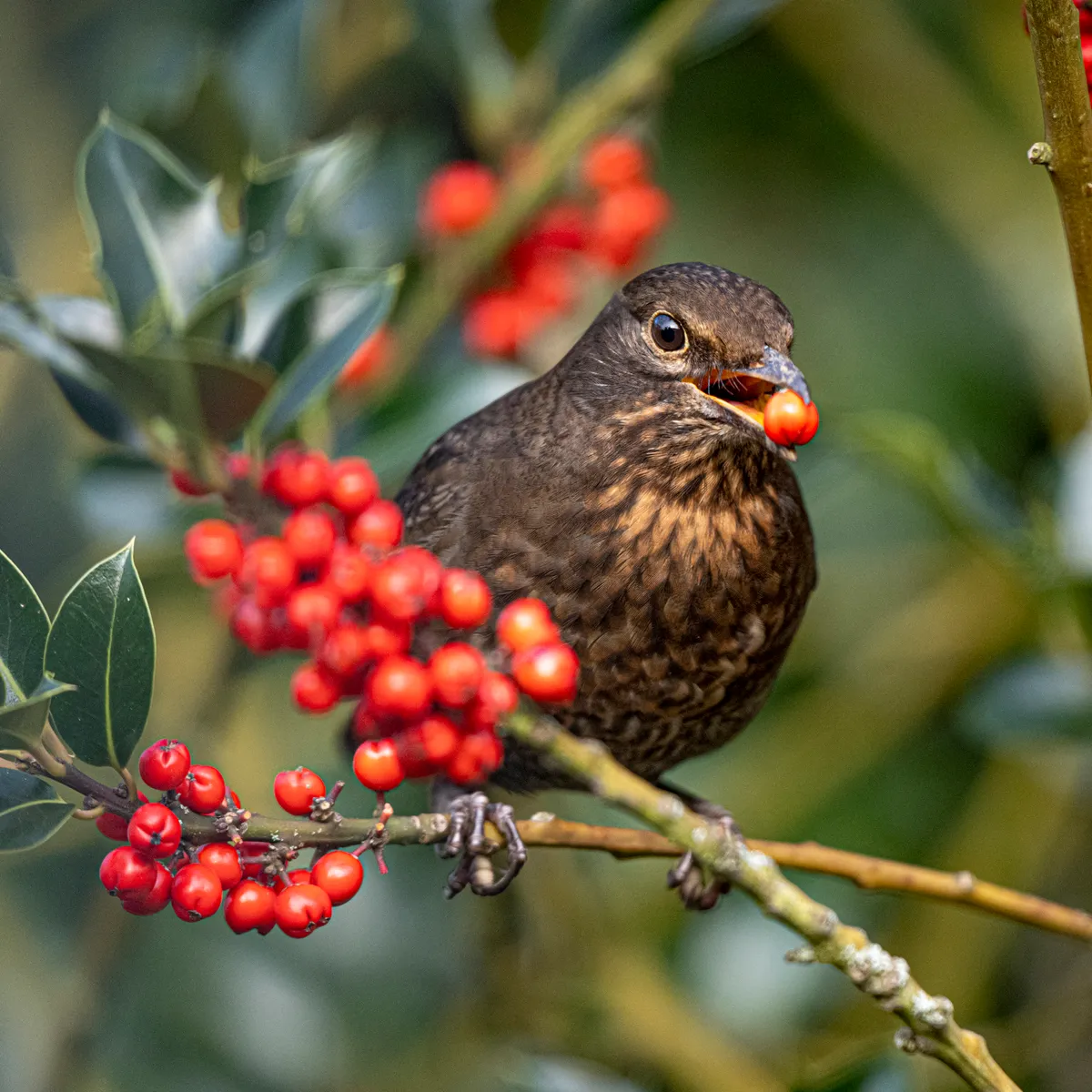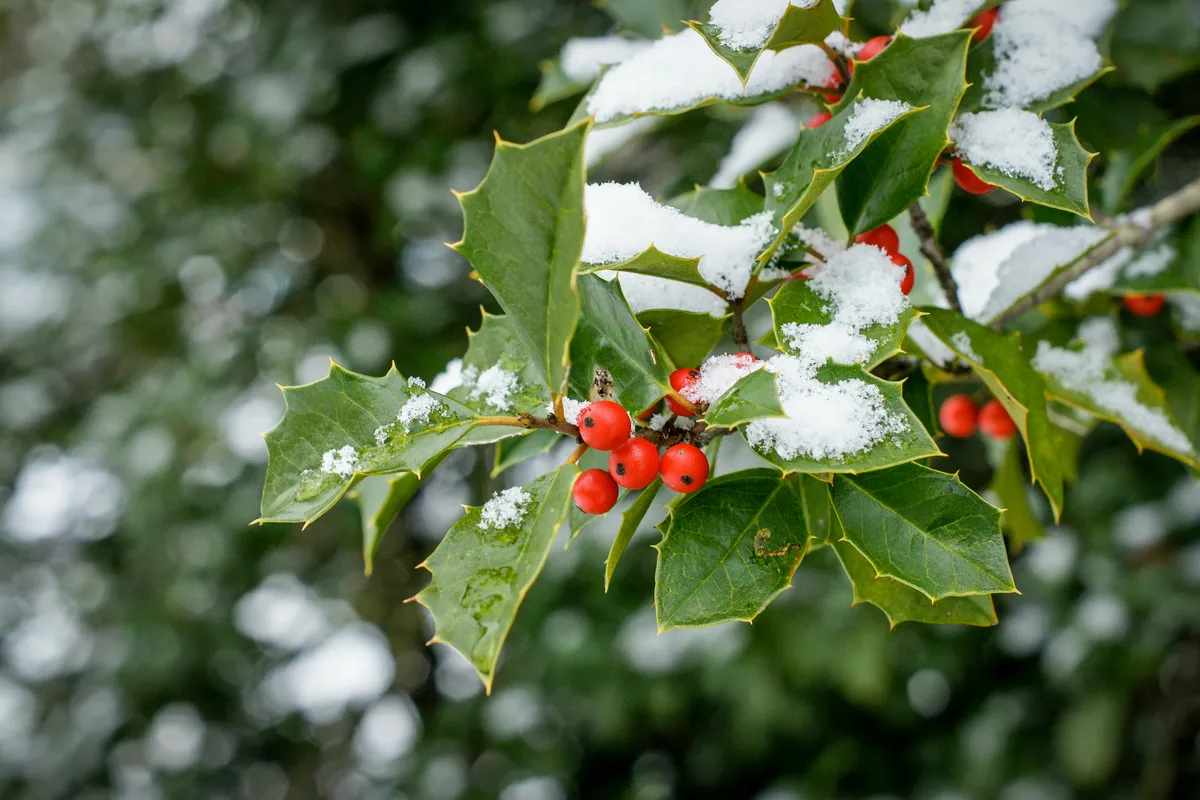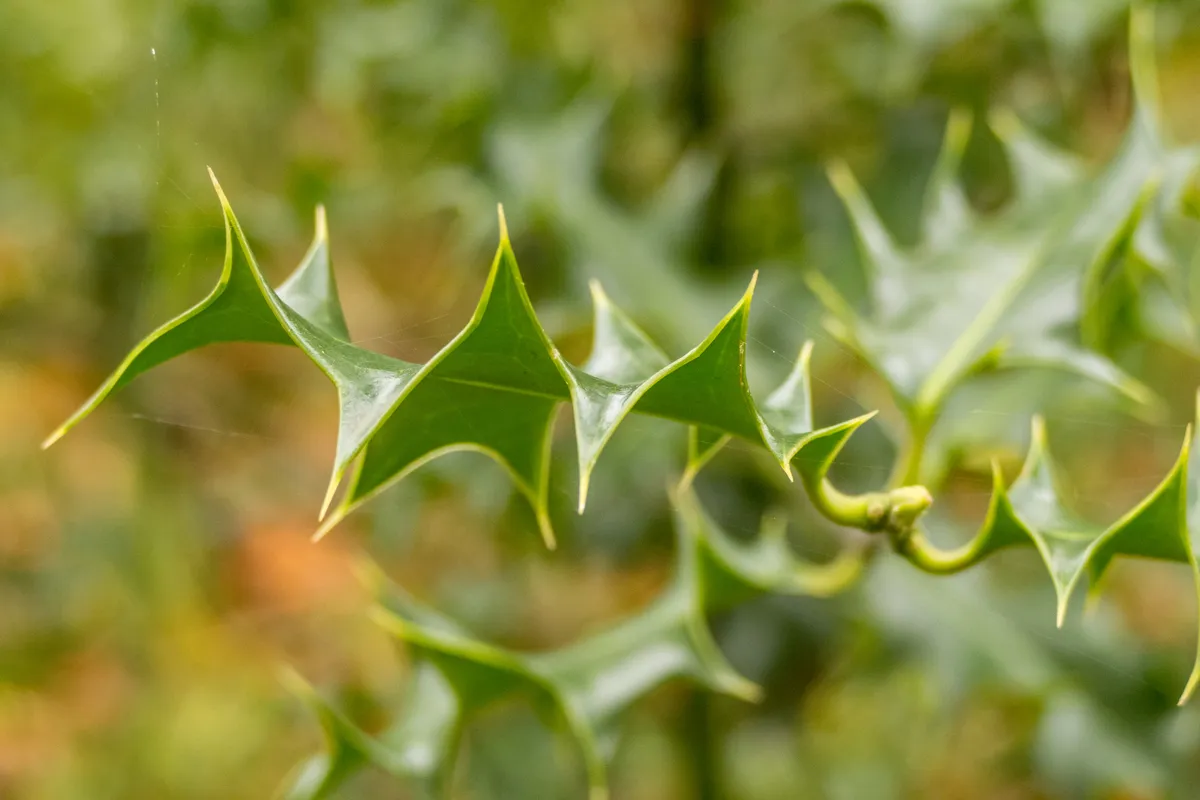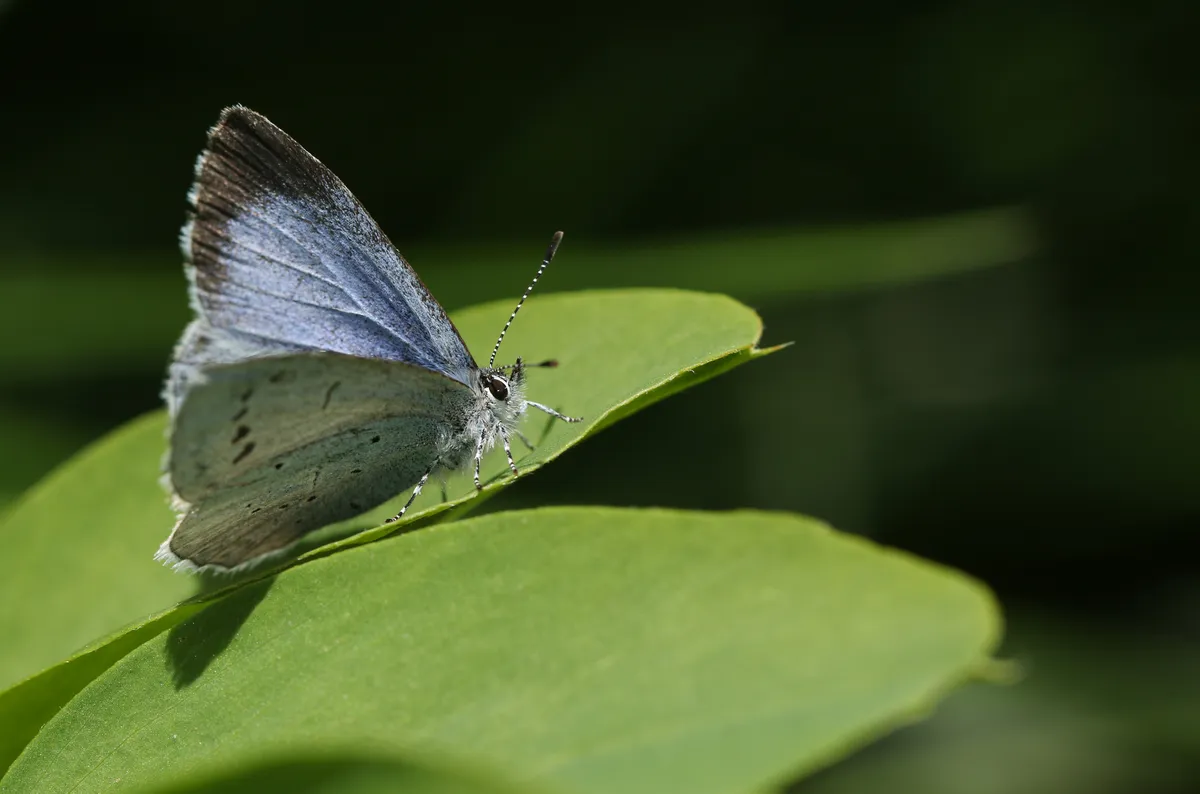Holly is a common plant in the UK and is also commonly associated with Christmas, along with ivy and mistletoe. Its iconic clusters of red berries and glossy green leaves with spikes that can catch incautious hands add a dash of colour to the winter landscape.
How is holly dispersed?
All five thrush species found in Britain in winter love holly berries, dispersing the stone fruit through their droppings.
Mistle thrushes are often highly protective of their tree, noisily guarding its berries against other birds.

How does holly reproduce?
Holly is a diocecious plant - which means that it has separate male and female plants. Only the female plants produce berries, known as drupes.
Botanically speaking, the fruit is the hard ‘stone’ at the centre, the exocarp is the red outer skin and the mesocarp is the fleshy orange layer in between.

What's the difference between male and female holly?
The male has four prominent, pollen-bearing stamens that splay out in an ‘X’ shape, seen in spring and summer, from May.
The female has a fat green ‘boss’ in the middle. This is the ovary, which forms the base of the yellowish stigma. There are also four stamens, but these don’t produce pollen. The flowering season is the same as the male.
Wy does holly have leaves in winter?
Holly leaves are evergreen. New low growth has more spines as it is within the browsing zone of deer - leaves that are above 2–3m are smoother-edged. Fallen holly leaves decay very slowly – look out for their paper-thin skeletons on the ground.

What eats holly?
Holly is a key foodplant for about 30 species of invertebrate, including the caterpillars of insects such as the holly blue butterfly (adult pictured below) and privet hawkmoth.

Main image: A robin on a branch of holly in the snow. © Andrew Howe/Getty






